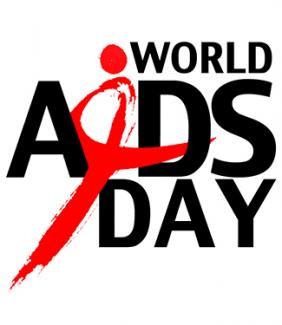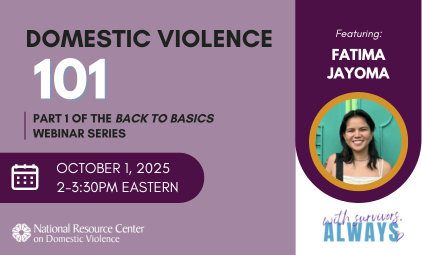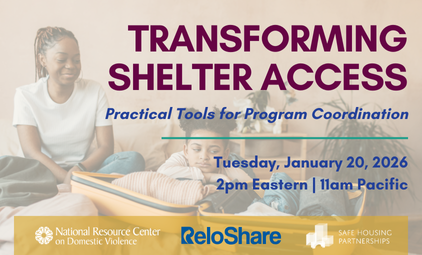by Eric Stiles, LifeSpan Manager, National Sexual Violence Resource Center
Let’s start this conversation by recognizing that December 1, 2016 marks World AIDS day. The focus this year is ending the stigma that is often attached to a diagnosis of HIV or AIDS. As advocates, we have a responsibility to understand the intersection of sexual violence and HIV and AIDS as part of supporting survivors to our best ability.
Begin by taking a breath and recognizing that we can play an important role in the healing journey for these individuals who, beyond dealing with the trauma of sexual violence itself, may be facing fear and stigma from a diagnosis they will likely feel little control over. We go back to our basics; we believe the survivor; we don’t judge – we understand that this experience is unique to them and they feel however they feel. We listen and support; we provide viable resources and options; we find ways of using our pre-existing knowledge to assist them wherever they are.
Individuals who have experienced sexual violence and are then faced with a possible HIV infection can experience a compounding effect in terms of the shame, guilt, and fear they feel. I have heard the following statements from survivors: “I must be being punished for drinking too much,” “I can't do this everyone – will look at me differently,” and “This can't be happening to me.” It may also have an impact on a survivor’s sense of many aspects of their identity, such as their spirituality or their sexuality. Using our skills as active listeners and knowledge of the impact and neurobiology of trauma, we can assist the victim/survivor and their loved ones in processing these feelings.
Generally, when a victim/survivor is in the emergency room (E.R.) during a forensic examination, they are asked if they would like to take an HIV test. The HIV test that takes place in the E.R. will only yield positive results if that individual has contracted HIV during the last 3-6 months. A follow-up test will be necessary, especially if they start a type of preventative medication, known as HIV postexposure prophylaxis (commonly referred to as PeP), to treat for possible infection. PeP medication is often prescribed for a month, but can also be prescribed for shorter time periods. During this time, it can be useful for an advocate to talk with the survivor about what this means for their current sexual practices if they are active. Honest communication about sex, sexual violence aftermath, and risk of HIV are conversations that we as advocates or helping professionals can make comfortable by showing an openness to hearing the survivor’s feelings and fears. The often-compounded sense of shame can silence survivors’ ability to speak. For help with opening up these conversations, and increasing our comfort in having direct exchanges about sex, we can explore cross-training opportunities with other service providers in the healthy sexuality field such as Planned Parenthood.
In my experience it is also useful to ask the survivor what type of support they wish to have during this “waiting” month. Some have requested extra appointments or asked me to call them once a week. The added anxiety during this wait time can be extremely stressful. Remind them that your center’s helpline is available as well. “27 Things Everyone Needs to Know about HIV” is an excellent resource for newly diagnosed persons or those unsure about their status.
New Partners
We must foster new alliances in the community that can help us develop a more complete understanding of, and response to, individuals who are or may be facing HIV and AIDS. These may be the folks who do the testing, who work to prevent HIV/AIDS, or provide treatment and case management for those with the diagnosis. These individuals hold insight into many questions that all advocates should know about the testing process, including questions that will be asked of survivors, medications that could be recommended, side effects of medications, and other key details.
We in turn have valuable information to share with providers about empowering and trauma-informed practices, interacting with survivors in ways that are less stigmatizing or retraumatizing. We can explain some common reactions to sexual violence, what is needed after a sexually violent crime has been committed, how such trauma can affect others in that person’s sphere, and the process for navigating the criminal justice or legal systems. Family and friends may not understand HIV, and in combination with sexual violence, this complicated dynamic can impact their ability or willingness to be a support system for the survivor.
A good example of this arises from questions that are asked of survivors during intake, testing and/or treatment for HIV. Providers should understand that many of their questions around “risk reduction” can reinforce a sense of shame and victim-blaming for events that led a survivor to this place – act(s) of sexual violence. Advocates can let the survivor know that these questions are part of a standard testing protocol that providers must adhere to, which will hopefully lessen any notion that these question are being asked to invoke shame or embarrassment.
Sometimes providers put a singular focus on “medication compliance” without asking or probing deeper about why a person may not be complying. I have worked with individuals who have said the act of taking medications is a constant reminder of the event, so they chose to stop taking them. This may not be in their long-term health interest, and an advocate can assist in processing those feelings, which could move a survivor to choose differently.
Seeking out closer ties with the religious communities in your area and finding allies that are able to support individuals is also something I would encourage. Many times, one’s sense of believing they are being punished or they deserve this outcome can play out in their religious/spiritual beliefs. Any allies we can create within religious communities to offer as resources can be very valuable.
Treatment Costs
HIV PeP medications can be very costly. Below are some initial steps you can take to start familiarizing yourself and your agency with the process of accessing such treatment, including ways to cover the costs:
- Know your local/closest HIV care facility and free testing clinics (this can alleviate the burden of future costs on survivors).
- Become familiar with HIV costs that can be covered under your state’s victim compensation program. Rules vary from state to state. For example, some states will cover a 3-day, 7-day, or 10-day prescription while others will cover a 30-day prescription. Some will cover the costs for this medication only if the survivor reports to law enforcement, while others don’t place this limitation on survivors. Contact your state’s victim compensation program to know exactly what the program will cover.
- Ask your local HIV care facility or Ryan White-funded agency (HIV case management service agency or a health clinic can fall under this) if they have any funds to cover the costs of PeP or the costs of the lab work for taking these medications.
- Review the current guidelines from the CDC for PeP to understand which drugs are suggested for each age group.
- The Fair Pricing Coalition offers helpful information on finding payment options for PeP, including contact information for the company selling the medications and guidelines for filling out the forms needed to obtain them. Review these often to stay informed as the guidelines have a habit of changing from time to time.
Finally, take care of yourself while working within intersecting traumas. It is important to have good supervision and other individuals to help process your work and feelings when you are uncertain or anxious. You can do this work. If you have any questions about working with survivors living with with HIV/AIDS or at risk of contracting HIV due to sexual violence, please feel free to connect through our website at resources@nsvrc.org or to contact me directly at estiles@nsvrc.org.
For more information on supporting survivors of domestic violence with HIV or AIDS, visit the VAWnet Special Collection, The Intersections Between Intimate Partner Violence and HIV/AIDS.















